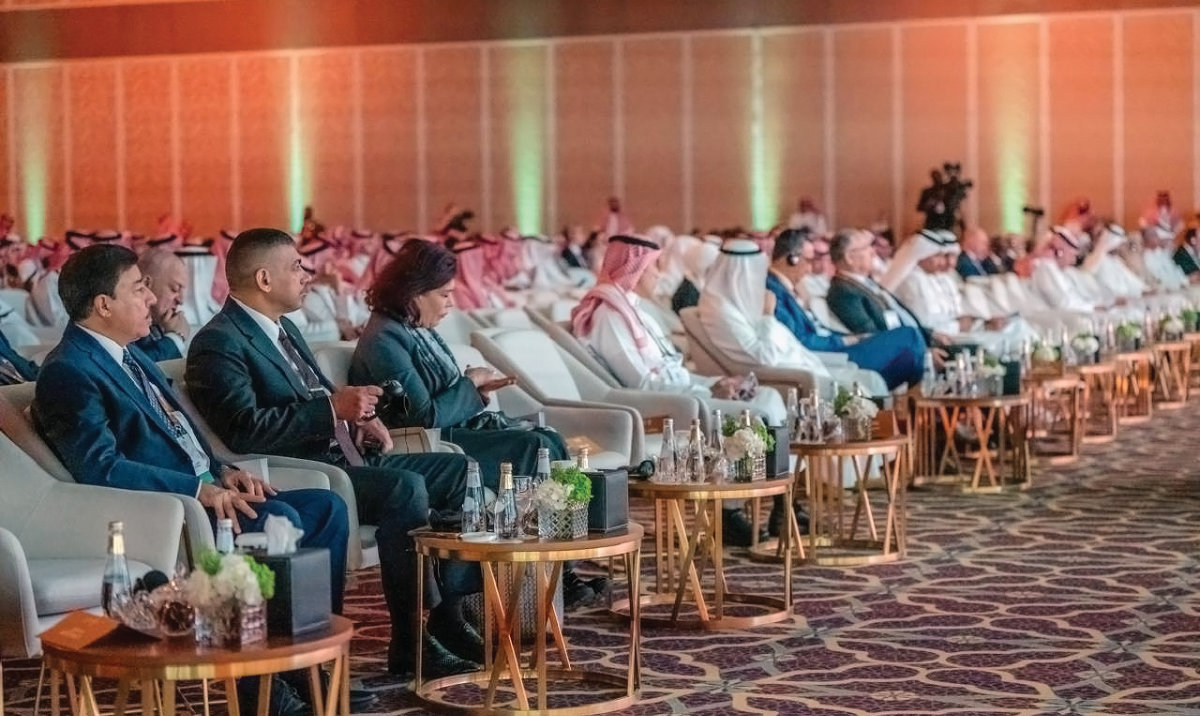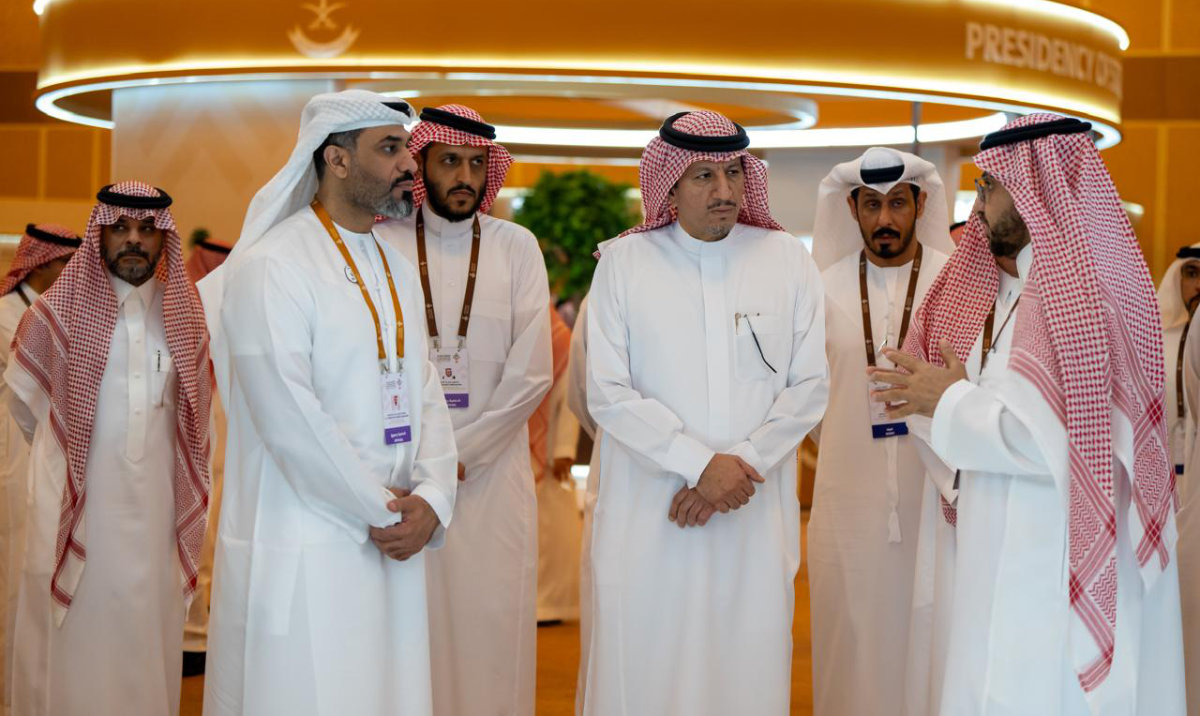RIYADH: Legal enforcement agencies must outperform organized crime groups by “miles, not just steps,” to prevent criminal alliances forming and flowing across borders, a major Riyadh forum on combating corruption has been told.
In a speech on “Building Human Capabilities to Fight Corruption and Fraud” delivered at the Arab Forum of Anti-Corruption Agencies and Financial Intelligence Units on Wednesday, Abdulmajeed bin Abdullah Al-Banyan, president of Naif Arab University for Security Sciences, said that developing strategies to fight organized crime “presents a significant challenge for both the creators and enforcers of these initiatives.”
He added: “They must ensure that the individuals they train will gain superior knowledge and skills compared to even the most adept criminal organizations as the crimes in question are intricate in nature, often orchestrated by sophisticated transnational gangs that leverage cyberspace and technology to perpetrate their illegal activities while evading detection.”
Organized crime encompasses terrorist groups, drug trafficking, money laundering, migrant smuggling, and human trafficking.
Naif Arab University for Security Sciences examined specialized training programs in the field of economic crime as part of a survey of the Arab region in 2018 .
“We noticed a shortage in the number and type of programs available compared with other regions of the world,” said Al-Banyan.

A panel session on ‘Enhancing Cross-Border Enforcement and Asset Recovery Mechanisms,’ on Wednesday in Riyadh. (AN photo by Huda Bashatah)
As a result, the university — the scientific body of the Arab Interior Ministers Council — made fighting economic crime one of its main priorities.
“We launched several master’s programs aimed at building capabilities in this field, the most important of which is the master’s program in financial integrity in cooperation with Case Western Reserve University in the US, which specifically aims to prepare experts in combating money fraud,” he said.
The university provides a master’s program in dealing with economic crimes, including corruption and financial fraud, and a master’s program in digital forensic investigation, which focuses on combating cybercrime and suspicious activities online.
NAUSS also launched a new master’s program in artificial intelligence this year, Al-Banyan said.
“We are currently considering adding a new master’s program in forensic accounting, which aims to qualify accountants to detect fraudulent financial practices, and qualifies them to conduct detailed financial investigations and reviews,” he added.
The university signed a memorandum of understanding with the Presidency of State Security in 2016 as part of its efforts to increase its work with key local and international partners.
“We strengthened our relations with the Oversight and Anti-Corruption Authority (Nazaha), and today, we will witness the MoU signing on the sidelines of this forum,” he added.

A panel session on ‘Enhancing Cross-Border Enforcement and Asset Recovery Mechanisms,’ on Wednesday in Riyadh. (AN photo by Huda Bashatah)
The university has partnered with the United Nations Office on Drugs and Crime, establishing a joint center at its headquarters to support the international and Arab community in combating organized crime, corruption, and money laundering.
Experts highlighted that fighting economic and financial crimes is a complex task that requires clear national strategies and effective cross-border cooperation.
Countries must work together to counter the threat posed by such crimes, which have the potential to severely damage economies and undermine financial systems.
Hassan Mohamud, Somalia’s Minister of Justice and Constitutional Affairs, told the forum that continuing conflict in Somalia has created a “complex money laundering landscape,” making international cooperation crucial for identifying and returning illicit funds.
Speaking during a panel session on “Enhancing Cross-Border Enforcement and Asset Recovery Mechanisms,” Mohamud said that judicial cooperation between countries, and the public and private sectors, is key to addressing these evolving issues.
“The need for sharing information on cross-border flows of money is important to combat money laundering effectively not just in Somalia, but globally,” he said.
In a keynote speech on “National Strategies: Risk Assessment in the Light of Rapidly Changing Realities,” Raed Radwan, head of the Palestinian Anti-Corruption Commission, said: “A national strategy directs efforts and resources fairly and effectively toward achieving specific goals to reduce financial crimes, and enhance integrity and transparency in the financial and economic system.”
He added that citizens have an important role to play in monitoring and reporting crimes, and raising awareness of likely threats.
“Reinforcement training is an awareness-raising activity usually supported by national strategies. It is not limited to employees, but should be available to citizens who wish to acquire knowledge to protect them and make them partners in combating these crimes,” he said.
National strategies also must include a continuous assessment of the risks surrounding financial crimes.
“This basis for evaluation can provide stakeholders with a view of the developments that perpetrators of financial crime can resort to or already resort to,” he said.
Radwan added that political and economic stability are key factors when it comes to halting the rise in financial crimes, which is evident in unstable countries.
“Financial crimes erode trust, affect economic and financial systems, leading to instability in the market, decreased investments, and hindered economic growth, resulting in financial crises,” he said.
Combating corruption and financial crimes is not the task of institutions based on and mandated by law, but is a participatory community task in which various societal sectors participate, Radwan said.




















